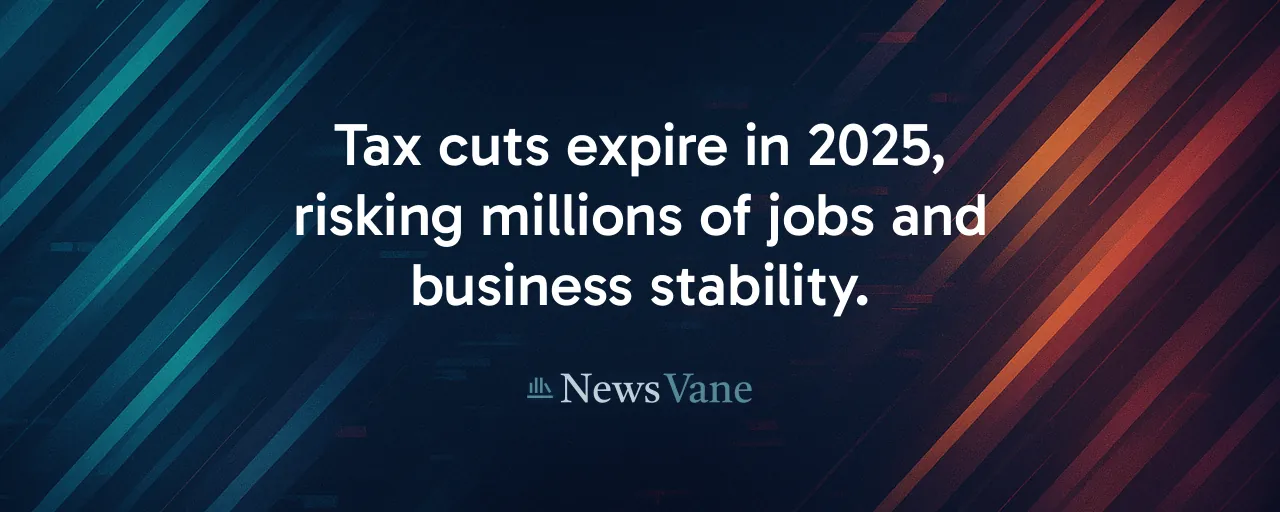A Tax Deadline Stirs Anxiety
Small business owners across the United States are on edge as a pivotal moment nears. Many provisions of the 2017 Tax Cuts and Jobs Act, which reshaped how businesses and individuals pay taxes, are set to expire at the end of 2025. A report from the National Association of Manufacturers raises alarms, projecting over 1.1 million manufacturing jobs and nearly six million jobs overall could vanish if Congress doesn't act. For family-run firms and factory workers, the uncertainty hits close to home.
The report highlights risks like reduced investment and tighter budgets for hiring. Yet, opinions differ sharply. Some policymakers warn that keeping these tax breaks could widen inequality and balloon deficits. With debates intensifying, the decisions made in Washington will ripple through communities and paychecks nationwide.
Small Firms Face Big Challenges
About 96 percent of U.S. businesses are pass-through entities, where owners pay taxes at individual rates. The 2017 law's 20 percent deduction for these firms helped them compete with corporations, funding new hires and equipment. A National Association of Manufacturers survey found 93 percent of these businesses say losing this deduction would curb their ability to grow or invest. Without it, a business owner earning $200,000 could lose a $40,000 deduction, potentially pushing them into a higher tax bracket.
Family-owned businesses, which account for 90 percent of U.S. firms, face another hurdle. The estate tax exemption, doubled in 2017, will halve in 2025. For manufacturers with valuable assets but limited cash, this could force sales of equipment or property to cover taxes when an owner dies, jeopardizing the survival of firms that support local jobs.
Arguments for Preserving Tax Relief
Those advocating for the tax cuts' extension emphasize their role in fueling growth. The 2017 law slashed the corporate tax rate from 35 percent to 21 percent, spurring a 20 percent investment increase for many firms, per U.S. Chamber of Commerce data. For small businesses, the pass-through deduction and full expensing of equipment purchases have driven upgrades and hiring. These policies have also supported a boom in factory construction, with projects like Johnson & Johnson's $55 billion expansion showcasing manufacturing's revival.
Broader benefits include higher take-home pay from lower individual rates and a doubled standard deduction, which have boosted consumer spending. Business advocates argue these measures are key to sustaining 3 percent annual GDP growth, a goal they believe is within reach with continued tax support.
Concerns About Fairness and Costs
Opponents of extending the tax cuts raise serious concerns. Analysts from the Tax Policy Center estimate that two-thirds of the benefits would go to the wealthiest 20 percent of households, with a quarter flowing to the top 1 percent. This could deepen income inequality, as lower-income workers, who owe little income tax, gain little while facing potential cuts to programs like SNAP if budgets are tightened to cover costs.
Research also tempers expectations. The tax cuts boosted business investment by 8-14 percent, but wage growth averaged just $750 per worker, far short of the $4,000-$9,000 once projected. Extending the cuts could add $2.2 trillion to deficits over a decade, per budget analysts, potentially raising interest rates and limiting funds for infrastructure or education.
Jobs and Growth Hang in the Balance
Manufacturers face a tough road as tax changes loom. The sector contracted in 2024, with new orders dropping and costs rising. New tariffs, some reaching 145 percent on Chinese imports, have increased expenses, while May 2025 saw manufacturing lose 8,000 jobs. Small businesses, which drive 70 percent of new jobs, are particularly exposed to these policy shifts, especially as they navigate pressures to adopt AI and retrain workers.
Yet, there's a bright spot. Laws like the CHIPS and Science Act have sparked a surge in factory construction, contributing a third of recent business investment. For small manufacturers, tax incentives are critical to keeping pace with technological change. The tax debate concerns staying competitive in a global economy, a matter that involves more than just financial figures.
Navigating an Uncertain Future
Congress faces tough choices: extend all tax cuts, prioritize middle-class relief, or let the provisions expire. Each option carries consequences for business owners deciding whether to hire or invest and for workers counting on steady jobs. The stakes are high for family firms hoping to pass their legacy to the next generation.
Balancing economic growth with fiscal health is the core challenge. Tax cuts have spurred investment, but their costs have raised questions about long-term affordability. Both sides recognize small businesses as vital to the economy, yet agreement on how to support them remains elusive.
For now, manufacturers and small business owners are preparing for change. The tax policy decisions ahead will shape factories, local economies, and household budgets, with effects that will echo for years. The question is whether Washington can find a path that keeps America's economic engine running strong.
